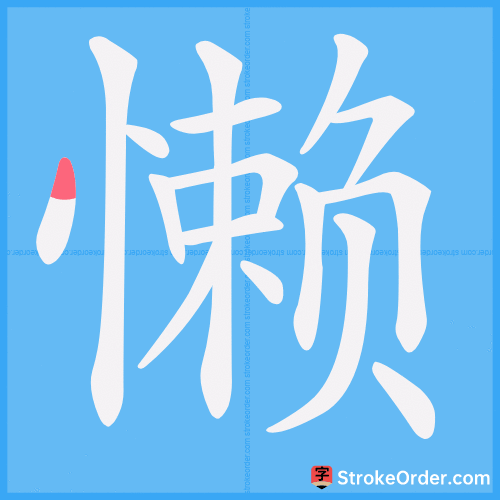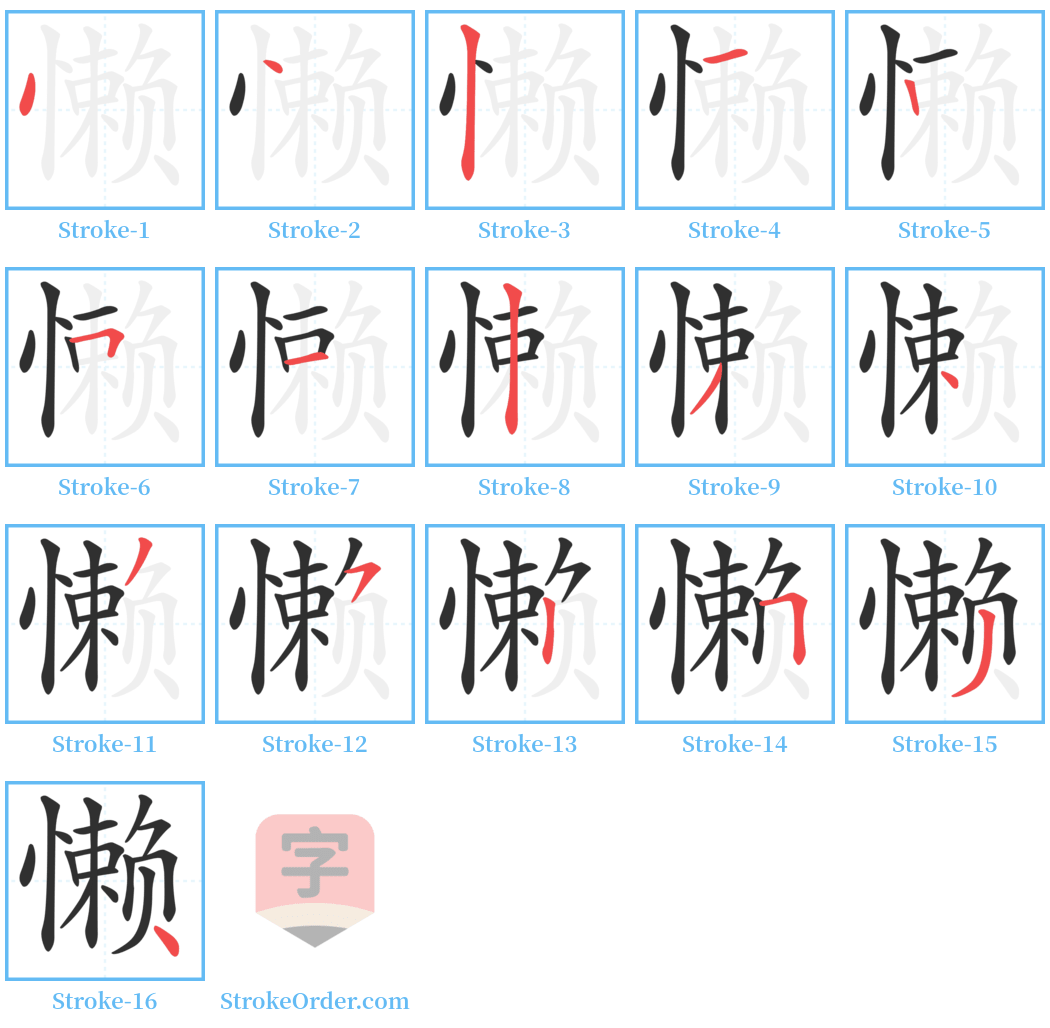懒 Stroke Order
Animated Stroke Order of 懒

Stroke Order Diagrams for 懒

Step-by-Step Handwriting Guide for 懒

Learn to Write Chinese Characters with Video Tutorials
Watch the video of writing the Chinese character "懒", learn the correct stroke order (笔顺) of the character "懒", and master the standard way of writing the character "懒".
Free Printable Handwriting Practice with Stroke Order: 懒
Printable Writing Practice Worksheet of "懒" in Portrait Orientation (Tian Zi Ge)

Printable Writing Practice Worksheet of "懒" in Landscape Orientation (Tian Zi Ge)

Information of 懒
Pinyin
lǎn
Radical
忄
Strokes
16 strokes
Usage
★★★★★
Definition
lazy
懒 (lǎn)
1. 怠惰,与“勤”相对。
Lazy; indolent; slothful.
2. 疲倦,没力气。
Sluggish; drowsy.
本义: 懒惰
Original meaning: Laziness.
造字法: 形声。从心,赖声。
Character formation: Phono-semantic compound; composed of "heart" and the sound component "lài".
同本义 ([En.] lazy; indolent; slothful)
1. Similar to the original meaning ([En.] lazy; indolent; slothful).
引:
1. 《说文》:懒,懈也。怠也。一曰卧也。字亦作懒。
(From "Shuowen": "懒 means slackness, idleness. It can also mean to lie down. The character can also be written as 懒." )
2. 《宋书·范晔传》:吾少懒学问,晚成人。
(From "Song History": "I studied lazily when I was young, and became an adult late.")
例:
又如:懒待(没有精神和兴致);懒怠(懒于做某种事);懒得(不想,不情愿);懒残和尚煨芋(唐衡狱寺和尚明瓒禅师,性子懒惰,常吃别人剩食,因号懒残。李泌在寺里夜读访他时,他正在牛粪中煨芋,并送半个芋头给李,叫他小心不要多讲话,去做十年宰相。后果如其言)
Examples:
For instance: "懒待" (lacking spirit and interest); "懒怠" (lazy to do something); "懒得" (unwilling, don't want to); "懒残和尚煨芋" (In the Tang Dynasty, Master Mingzan from the jail temple was lazy and often ate leftovers, earning him the nickname "懒残". When Li Bi visited him one night to read in the temple, he was cooking taro in cattle dung and offered him half a taro, telling him to be careful not to speak too much and to become a prime minister in ten years; the result turned out as foretold).
疲惫 ([En.] sluggish; drowsy)
2. Fatigue ([En.] sluggish; drowsy).
例:
如:懒困(疲倦困怠);懒怯(疲倦虚弱)
Examples:
Such as: "懒困" (tired and sluggish); "懒怯" (tired and weak).
Input Method for 懒
Pinyin
lan3
Wubi
ngkm|nskm
Cangjie
pdlo
Zhengma
ufrl
Four Corner
97082
Unicode
U+61d2
Same Pronunciation Characters